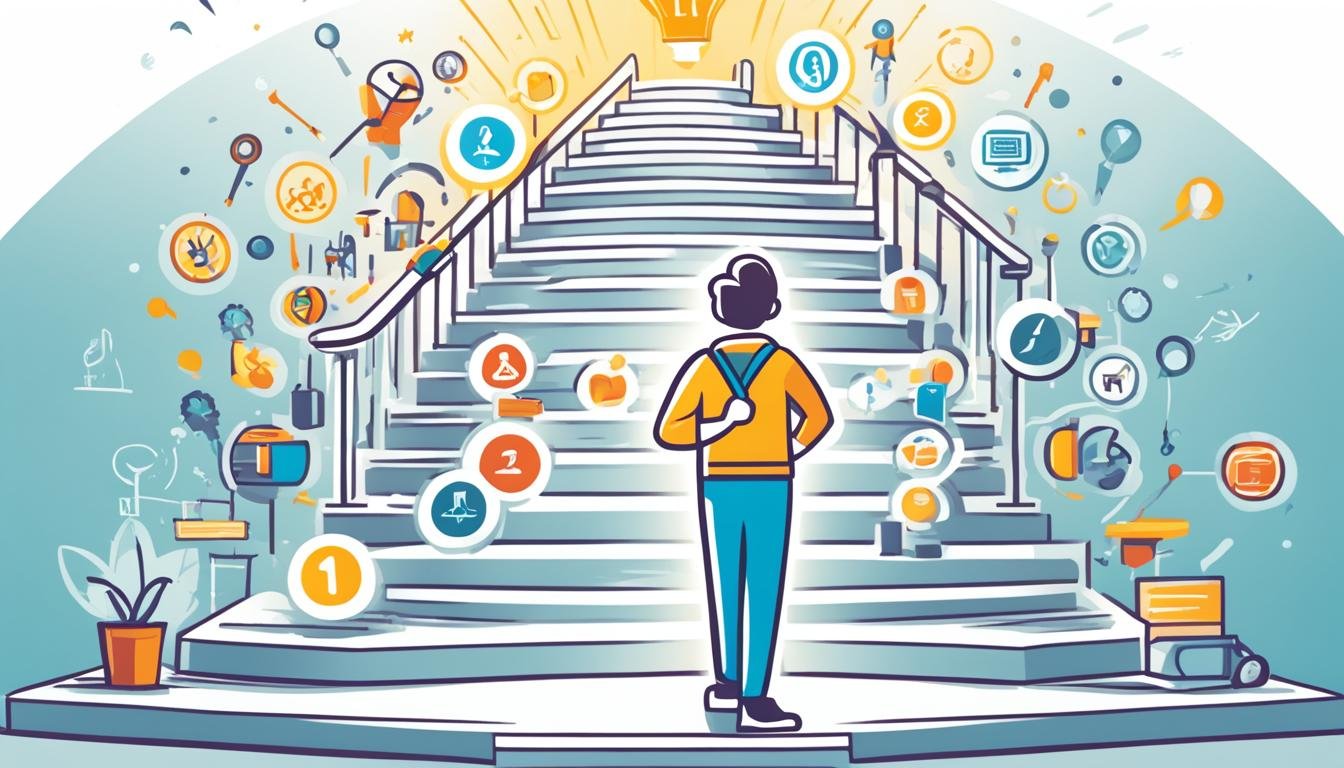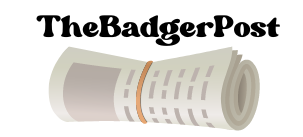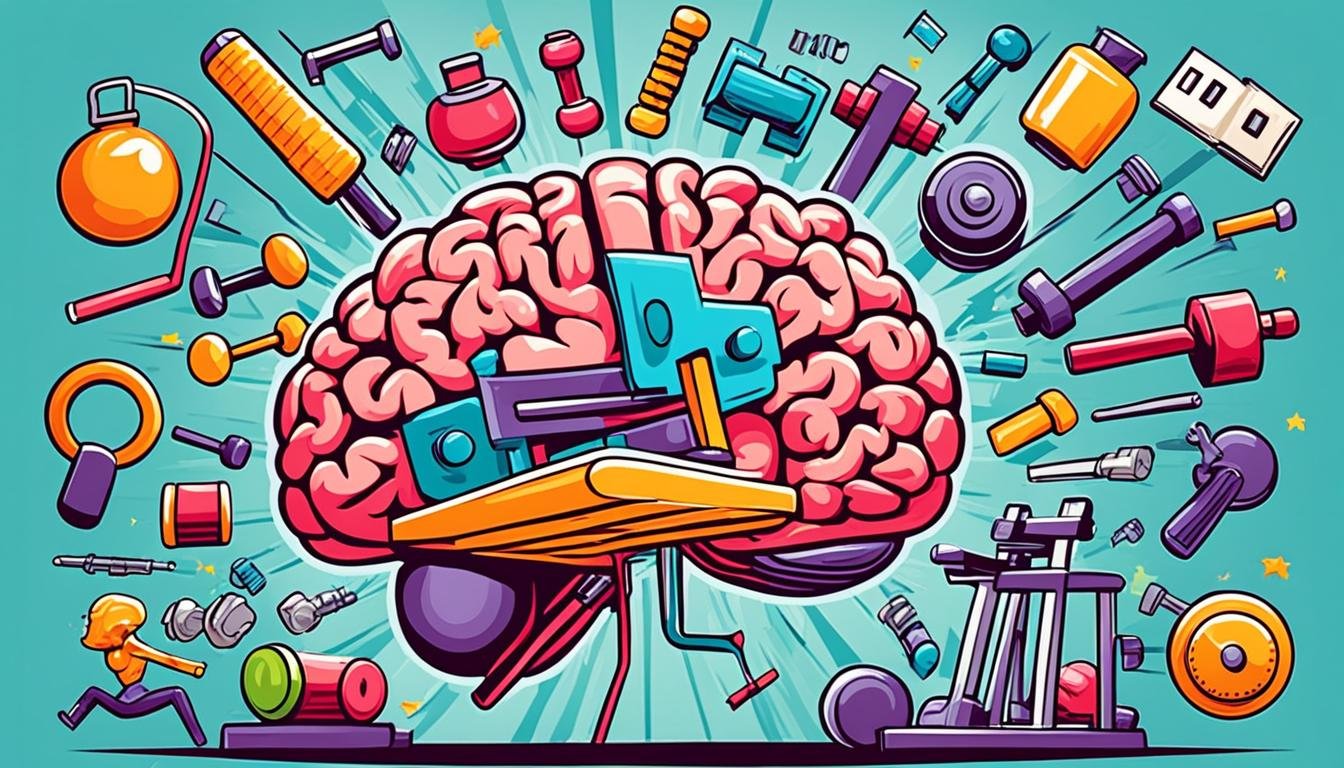Have you ever thought about making your brain work better and keeping it sharp as you age?
Brain training is all about doing activities that make your thinking skills like memory, focus, and solving problems better. It’s important to do these exercises often to keep your brain in top shape. These exercises can make your brain more active and connected. They also help prevent your brain from slowing down as you get older.
There are many ways to train your brain, from special workouts to everyday tasks. For example, playing card games or board games can help older adults keep their brains sharp1. Doing puzzles regularly is also good for your brain2. These activities are key to keeping your brain flexible and fit.
Studies show that brain training has lots of benefits. A 2017 study found that doing 22 specific brain exercises improved memory, thinking, and creativity2. Adding activities like learning new dance moves or solving jigsaw puzzles can make your brain more agile and adaptable1. This approach keeps your brain sharp and ready for anything life throws your way.

Key Takeaways
- Brain training includes activities designed to improve memory, focus, and problem-solving.
- Regular brain exercises can protect against cognitive decline and enhance mental fitness.
- Card games and puzzles are linked to better cognitive function and reduced risk of cognitive impairment.
- Neuroplasticity training helps the brain adapt and reorganize, fostering cognitive enhancement.
- Diverse brain activities ensure mental agility and a more connected brain.
Introduction to Brain Training
Brain training is a great way to boost your brain skills. It uses different techniques to make your memory and thinking faster. Many people of all ages find it helpful.
Understanding Brain Training
It’s about doing activities that help your brain change and grow. These activities are like games that make your brain better at paying attention, remembering things, and solving problems34. It’s especially good for people with certain brain challenges like ADD or ADHD4.
Benefits of Brain Training
Brain training has lots of benefits. It makes your memory and speed better, which helps you do better in school or work3. It also makes you feel happier and less stressed3. Plus, it helps you be more creative and flexible in everyday life.
How Brain Training Works
It works by making your brain do new and hard tasks. Doing it daily, even just for a few minutes, can make a big difference over time4. Apps like Elevate give you training plans that change based on what you need and how you’re doing3. This keeps your brain sharp and ready for new challenges.
The Role of Brain Exercises
Doing brain exercises regularly can make your thinking better, improve memory, and make your mind quicker. Activities like memory games, puzzles, and visualization help keep your brain healthy and efficient.
Memory Games
Memory games are key for memory improvement. They help people remember things better. Over 2,800 adults aged 65 and up took part in brain-training, showing better memory, reasoning, and speed for at least five years5.
These exercises slow down thinking skill declines as you get older5. Regular brain workouts also help with managing money and doing household tasks5.
Puzzles and Cognitive Tasks
Puzzles and cognitive tasks boost skills like recognizing patterns and solving problems. They help grow new brain cells and improve how they talk to each other brain cell growth and connectivity5.
Visualization Techniques
Visualization involves making clear mental pictures. It helps organize information, improve decision-making, and boost memory. These methods can also protect against Alzheimer’s by reducing brain cell damage5.
Doing these regularly makes your brain more agile and efficient over time.
The Impact of Meditation on Cognitive Health
Meditation is getting a lot of attention for its benefits to the brain. It helps improve focus and cognitive function. Studies have looked into how meditation affects things like attention, memory, and executive functions.
Meditation Methods for Brain Health
Many meditation methods are good for the brain. Types include mindfulness, Zen meditation, transcendental meditation, and awareness meditations. Mindfulness meditation is especially good at making connections between important brain areas6. These areas are key for thinking and staying calm.
Benefits of Meditation for Cognitive Function
Meditation is great for brain health and cognitive function7. For example, mindfulness meditation helps adults with ADHD manage their emotions better and improves focus in kids with ADHD6. Long-time meditators have better attention and flexibility in thinking6.
It can even help prevent or slow down brain diseases like Alzheimer’s7. Studies on older adults show meditation helps with attention, memory, and thinking speed8.
More research shows meditation boosts working memory, executive function, and reduces stress and anxiety6. Regular meditation is good for the brain and helps keep cognitive function sharp over time.
| Meditation Method | Benefits |
|---|---|
| Mindfulness | Increased functional connectivity, improved emotional regulation, enhanced performance in executive functions6 |
| Zen Meditation | Promotes calmness and focus enhancement7 |
| Transcendental Meditation | Reduction of stress, better overall brain health7 |
| Awareness Meditations | Improves attention, cognitive flexibility, and general cognition8 |
The Power of Learning New Skills
Learning new skills is a great way to keep your brain active and healthy. During the pandemic, many people stayed home more, which hurt their mental health. But, learning new things can help by making your memory better, making you quicker, and improving your brain’s function.
Activities like learning a new instrument or a language can make your brain stronger. They create new paths in your brain, which makes you less scared and more positive910.
Skill Development and Brain Function
Learning new skills is key to keeping your brain sharp. Studies show that learning a new language can make your brain work better. It helps with memory, being flexible, and being creative. It also can delay when you might get dementia10.
Doing things like digital photography or quilting for a bit each week can also make your memory better, especially as you get older10. These activities make your brain more agile and can make you feel better mentally. They boost your confidence and make life better11.
Examples of Beneficial Skills to Learn
There are many skills you can learn to make your brain work better. Some top skills include:
- Learning a musical instrument – Makes your brain work better by making new paths.
- Learning a second language – Makes memory better and mental flexibility. It also delays dementia and boosts creativity10.
- Digital photography – Makes long-term memory and brain agility better10.
- Quilting – Increases mental flexibility and creative problem-solving10.
- Tai Chi & Yoga – Supports brain health and helps you relax10.
Learning new skills does more than just make your brain work better. It also helps you meet people and feel less alone. These activities make you talk and connect with others more, which is good for your social skills and relationships. Plus, learning new things makes your brain release dopamine, which makes you happier11.

Using Games for Brain Enhancement
Games are great for making your brain work better and keeping it sharp. They come in many forms, from classic card and board games to modern video games. These activities are packed with benefits for your brain.
Card Games and Board Games
Playing card games and board games boosts your mental speed and brain health. Games like chess, Scrabble, and bridge need you to think ahead and solve problems. They exercise your brain and help you remember things better.
These games also make you interact with others. This is key for keeping your brain healthy and fighting off mental decline.
Benefits of Video Games
Video games can really help your brain health12. Games like Lumosity and Elevate have exercises that boost your focus, speed, and problem-solving skills12. For instance, playing Lumosity for 15 minutes a day for three weeks can make you more attentive and quick12.
These games also have plans that fit what you need, making them a smart way to improve your brain. Peak’s games can also make you better at focusing, remembering things, and more12. They help with better thinking and brain12.
Social Engagement Through Games
Games are also good for meeting people and staying connected. Playing with others in multiplayer games or joining gaming groups gives you a chance to keep your mind sharp and feel supported. Board games and online games let you interact with others, cutting down on feeling lonely or isolated. Feeling connected is key to a healthy brain.
In the end, adding brain games to your life does more than just make you smarter. It also helps you stay connected with others. From old-school card games to the latest video games, these activities are a full package for keeping your brain in top shape.
Importance of Physical Exercise
Regular physical exercise is key for keeping your brain healthy and improving your thinking skills. Studies show that running and other aerobic exercises can make your brain bigger, especially in areas important for learning and thinking. This helps your brain stay flexible and work better.
Exercise and Brain Health
Being active helps your brain in many ways. It boosts your memory, thinking skills, and how you move. Activities like running, biking, and swimming increase a brain chemical that helps with learning and memory13. They also make you better at planning and making decisions by growing a key brain area13.
Types of Beneficial Physical Activities
Adding different exercises to your life can really help your brain. For example, tai chi, dancing, and sports make you fitter and smarter. They grow your brain, help you focus better, and process information faster14. Activities that get you moving a bit harder can also make your brain area for memory bigger13.
Link Between Physical Fitness and Cognitive Function
There’s a strong link between being fit and thinking well. Studies show that being more active means a healthier brain in people with certain diseases14. Exercise also helps with depression and anxiety, showing it’s good for your mind and body14.
Brain Training
Brain training has become a big deal for boosting our thinking skills. It was worth $1 billion in 2012 and has grown a lot since then15. Companies like CogniFit, Cogmed, and Posit Science have made apps and programs to help with memory, solving problems, and even stopping dementia15. They’ve used talks about how our brains can change and shown results from studies15.
But, there’s a lot of debate and mixed results about brain training16. Many experts question the trustworthiness of many brain training products because they’re not well supported by science16. This has led to lawsuits against some companies for false advertising15. Yet, some studies suggest it could really help, like the FDA approving games for ADHD16.
Big studies like the IMPACT and ACTIVE ones show that certain brain-training programs can really help adults think better17. The ACTIVE study found that older adults doing BrainHQ exercises had 48% fewer car crashes17. These exercises work on memory, focus, and driving skills, and are made just for you17. It’s recommended to do brain exercises three times a week, for 30 minutes each17.
New tech has made the brain training industry grow, helping people get better after illnesses like cancer or COVID-1916. Even though there are still questions about how it works for everyone, studies are looking into it16. They want to learn how different training affects people, hoping to make brain training more personal in the future.
The Benefits of a Healthy Diet
A healthy diet is key to boosting your brain fitness. It should include a mix of important nutrients like B vitamins, omega-3 fatty acids, antioxidants, and choline. These nutrients are vital for your brain’s health and mental well-being.
Nutritional Elements for Brain Health
B vitamins are crucial for nerve health and energy. Not having enough B vitamins can cause nerve damage, low energy, and forgetfulness18. Omega-3 fatty acids in foods like salmon help keep cells and nerves working right, especially in kids18. Antioxidants in fruits and veggies protect the brain, help memory, and fight inflammation18. Vitamin E from nuts and seeds keeps nerve cells safe and improves coordination18. Choline is needed for nerve protection and making brain chemicals; not enough can affect memory18.

Dietary Recommendations for Cognitive Enhancement
Experts suggest diets like the Mediterranean, DASH, and MIND diets for better brain function. These diets focus on foods like leafy greens, whole grains, fish, poultry, beans, nuts, seeds, berries, and olive oil. These foods are good for both your brain and heart18. Eating complex carbs, lean proteins, and healthy fats from fish, nuts, and flaxseeds also helps your mental health19. It’s good to keep track of what you eat with a journal and make a healthy shopping list to choose better foods19.
| Food | Key Nutrients | Benefits for Brain Health |
|---|---|---|
| Leafy Greens | Vitamin K, Lutein | Supports overall brain function |
| Fatty Fish | Omega-3 Fatty Acids | Essential for brain cell structure and function |
| Berries | Flavonoids, Antioxidants | Enhances memory and reduces inflammation |
| Nuts and Seeds | Vitamin E, Omega-3 Fatty Acids | Protects nerve cells and maintains cellular health |
| Whole Grains | Fiber, B Vitamins | Provides energy and supports nerve function |
The Connection Between Sleep and Brain Health
Sleep is key to keeping your brain healthy and boosting your thinking skills. It helps your brain go through different stages, like REM and NREM sleep, which are important for healing and handling emotions20. Getting 7 to 9 hours of sleep each night can make your mind sharper by helping you remember things better and solve problems more easily21.
Good sleep also helps your brain get rid of toxins, which might lower the risk of diseases like Alzheimer’s and Parkinson’s20. Not sleeping well can lead to health issues, such as high blood pressure, diabetes, and feeling sad22. To keep your brain healthy, make sure to sleep well by avoiding bright lights and caffeine before bed21. Also, having a regular sleep schedule and a comfy place to sleep can make you sleep better and think clearer20.
Getting enough sleep is as important as exercising and eating right for your health21. REM sleep helps with learning, feeling good, and being creative, which is great for solving tough problems2120. By knowing how sleep affects your brain, you can make changes to improve your health and thinking skills.
FAQ
What is brain training?
What are the benefits of brain training?
How does brain training work?
What types of brain exercises are effective?
How does meditation benefit cognitive health?
Can learning new skills enhance brain function?
How do games contribute to brain enhancement?
What types of physical exercise benefit the brain?
How does diet impact brain health?
Why is sleep important for brain health?
Source Links
- https://www.healthline.com/health/mental-health/brain-exercises
- https://www.medicalnewstoday.com/articles/brain-exercises
- https://elevateapp.com/blog/what-is-brain-training
- https://ourjourneywestward.com/downloads/brain-training/
- https://www.webmd.com/alzheimers/preventing-dementia-brain-exercises
- https://chopra.com/blogs/meditation/the-benefits-of-mindfulness-meditation-for-cognitive-health-and-learning?srsltid=AfmBOorZfcKm5QhgyFAsJp2c2mOkHInBY_mbQEp24i7tPu2u5iGzmdAa
- https://www.ncbi.nlm.nih.gov/pmc/articles/PMC3903052/
- https://www.ncbi.nlm.nih.gov/pmc/articles/PMC4024457/
- https://www.piedmont.org/living-real-change/the-mind-body-benefits-of-learning-a-new-skill
- https://northbridgecommunities.com/blog-post/benefits-of-lifelong-learning/
- https://www.upskilled.edu.au/skillstalk/mental-health-benefits-learning-new-skill
- https://www.verywellmind.com/top-websites-and-games-for-brain-exercise-2224140
- https://www.scientificamerican.com/article/why-your-brain-needs-exercise/
- https://www.ncbi.nlm.nih.gov/pmc/articles/PMC4410170/
- https://en.wikipedia.org/wiki/Brain_training
- https://www.scientificamerican.com/article/does-brain-training-actually-work/
- https://www.brainhq.com/better-brain-health/article/brain-training/everything-you-need-know-about-brain-training
- https://www.webmd.com/brain/what-to-know-about-foods-for-brain-health
- https://www.sutterhealth.org/health/nutrition/eating-well-for-mental-health
- https://www.caritashospital.org/article/the-connection-between-sleep-and-brain-health
- https://www.heart.org/en/healthy-living/healthy-lifestyle/sleep/sleep-your-way-to-a-smarter-brain
- https://www.ninds.nih.gov/health-information/public-education/brain-basics/brain-basics-understanding-sleep




